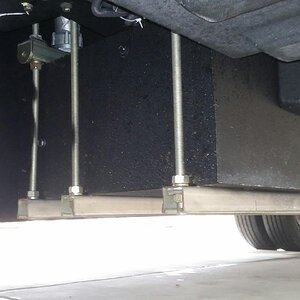FL-JOE
RVF 1K Club
- Joined
- Nov 15, 2019
- Messages
- 1,230
- Location
- Frostproof, Florida
- RV Year
- 2022
- RV Make
- Forest River (sold)
- RV Model
- Salem FSX 270RTK-X
- RV Length
- 32
- TOW/TOAD
- 2022 Ford Expedition Timberline
I seriously doubt you were able to tow any travel trailer in 70mph cross winds my friend. I can assure you that most states would close their interstates if conditions included 70mph cross winds because that would mean there were gusts reaching higher limits. I can assure you from my years of working as a Trooper that few vehicles can stay on the road in 70mph cross winds, let alone travel trailers and other high top vehicles.I've always done very well with all of my travel trailers. With the proper setup of tow vehicle and TT there is no reason why any other RV would be better. I've towed in 70 MPH cross winds that were blowing empty semi's over in front and back of us. Had to go 40 miles like this until we found a pull off to wait it out.
Now if you are talking about being in a situation where the cross winds were 30 to 40mph and there was a recorded gust close to 70mph, then I might bite. But I would still suspect that 70mph gust would have knocked your TT off the road onto the shoulder at the very least.











